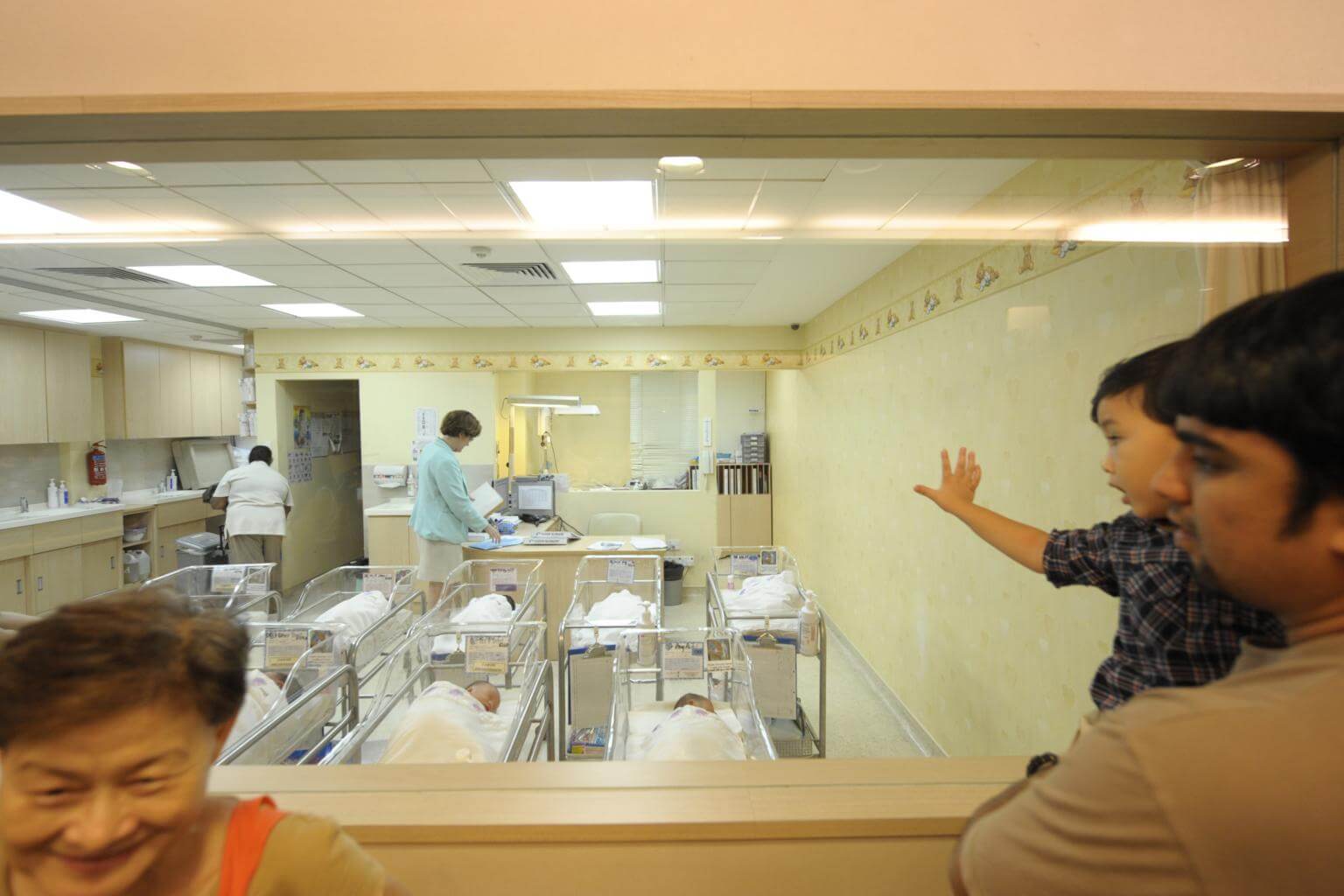Trial for screening IVF embryos to start soon
Screening used to be restricted to parents with inherited diseases
Sign up now: Get ST's newsletters delivered to your inbox

Babies in a nursery at the Thomson Medical Centre.
PHOTO: ST FILE
The Ministry of Health (MOH) plans to allow the screening of embryos before they are implanted in women undergoing in-vitro fertilisation (IVF), a move cheered by doctors offering assisted reproduction.
Obstetricians have long urged the ministry to allow the screening for chromosomal abnormalities, which account for more than half the miscarriages that occur.
But the ministry did not give it the nod because "the published evidence had been unclear", said Dr Amy Khor, Senior Minister of State for Health, yesterday when she announced the review in Parliament.
"In recent years, however, newer technologies have emerged and some jurisdictions have now allowed pre-implantation genetic screening," she added, citing the United States, Australia, Britain, Norway, France and Malaysia.
In Singapore, such screening was restricted to parents with an inherited disease, like thalassemia.
Last year, women in Singapore went through more than 6,000 assisted reproduction cycles in the hope of getting a baby. Fewer than one in four resulted in live births.
-
WHAT IT SHOULD HAVE BEEN
In yesterday's report, "Trial for screening IVF embryos to start soon", we used a picture of a nursery in Mount Alvernia Hospital.
The hospital has pointed out that it does not carry out in-vitro fertilisation procedures.
Dr Khor said the National University Hospital (NUH) will start a three-year trial on the clinical effectiveness of such genetic screening early next year.
The criteria for taking part in it are being worked out and will be available closer to its start date, she added in her reply to Mr Louis Ng (Nee Soon GRC).
Mr Ng and Ms Cheng Li Hui (Tampines GRC) had asked if the MOH would permit the screening to improve the chances of a healthy birth, while prohibiting gender selection.
Dr Khor also said the MOH will consult stakeholders and the public as well as look into the ethical concerns.
"We will need to ensure that embryos are not eliminated solely based on parental preferences on characteristics like gender," she added.
Today, such screening can detect more than 100 genetic conditions.
Dr Christopher Chong, an obstetrician at Gleneagles Hospital, lauded the review, but said proper monitoring and reporting are needed for pre-implantation genetic screening.
He said: "It can potentially reduce (the number of) abnormal babies, miscarriages, failures, reduce trauma for mothers as they can find out before pregnancy, compared to the anguish of discovering it during pregnancy or even after delivery.
"If there are major defects in the genes of the embryo, we will not proceed with the embryo transfer."
But he cautioned that screening is not foolproof. There is still the risk of miscarriage or damage to the embryo.
Dr Steven Teo of Thomson Fertility Centre said pre-implantation genetic screening "has benefited many infertile couples in overseas centres, with significantly improved pregnancy rates''.
The improved rates may coax more women to accept one embryo, instead of two or three to raise their chances of having a baby. That will also reduce the likelihood of having high-risk multiple pregnancies, he said.
He also said that if resources are limited, priority should be given to older women and those who have tried and failed in the past.


